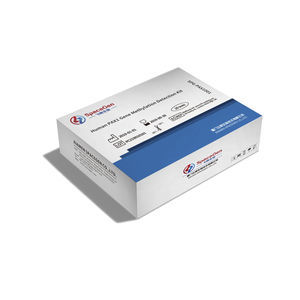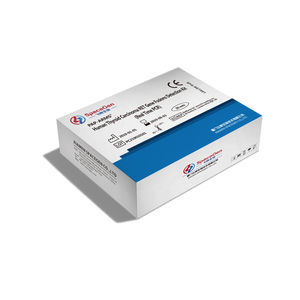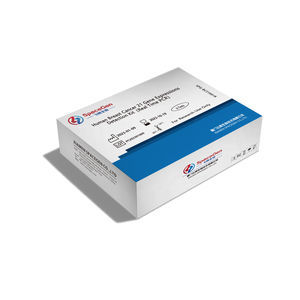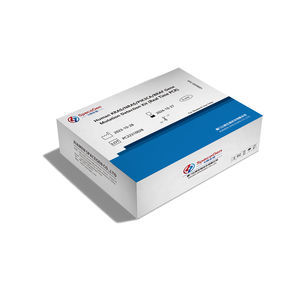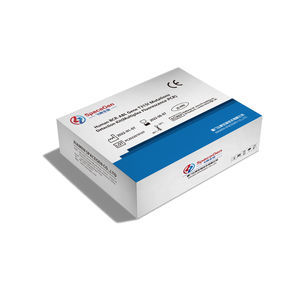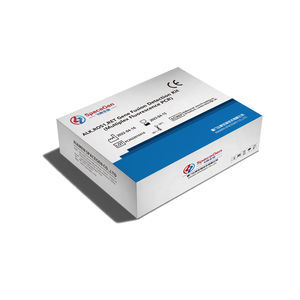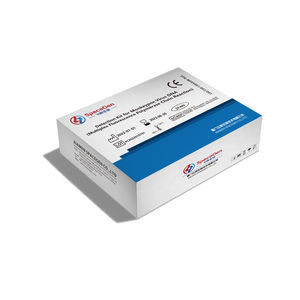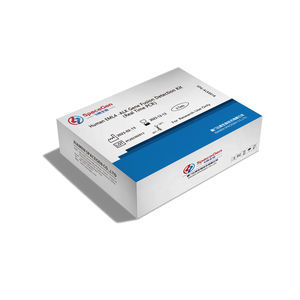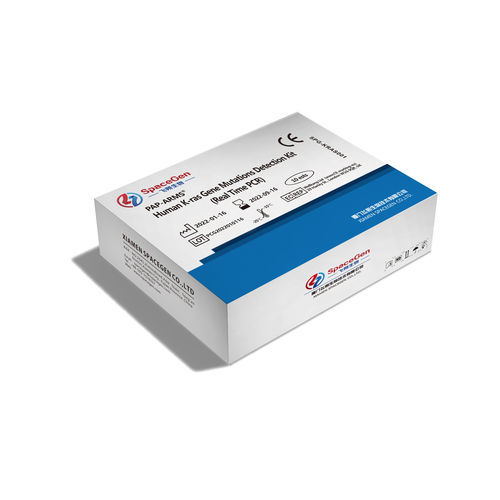

- Company
- Products
- Catalogs
- News & Trends
- Exhibitions
Lung cancer detection kit PCG2022010116colorectal canceroncologyfor KRAS mutations
Add to favorites
Compare this product
Characteristics
- Applications
- for lung cancer, colorectal cancer
- Application field
- oncology
- Tested parameter
- for KRAS mutations, EGFR
- Sample type
- plasma, cell
- Result display time
90 min
Description
Kirsten rat sarcoma viral oncogene (K-ras) is the most frequently mutated gene in patients with non-small cell lung cancer (NSCLC) in USA/Europe and the second most frequently mutated gene in patients with NSCLC in East Asian, with a mutation frequency of 9.8%; about 30% of which are G12C mutations [1]. K-ras mutation is associated with poor prognosis (compared to wild type, HR=1.5, P=0.002) [1]. In May 2021, the FDA approved AMGEN's KRAS G12C inhibitor Sotorasib for the treatment of adult patients with KRAS G12C-mutated locally advanced or metastatic NSCLC, who have received at least one prior systemic therapy.
KRAS MUTATIONS IN COLORECTAL CANCER
Cetuximab and panitumumab are monoclonal antibody drugs that target epidermal growth factor receptor (EGFR), which can competitively prevent EGFR from binding to its ligand and inhibit its downstream signal transmission. K-ras is located in the MAPK signaling pathway downstream of EGFR. The mutant K-ras protein does not depend on the regulation of EGFR, therefore,patients are resistant to cetuximab and panitumumab. The FDA specifically stated in the product instructions for cetuximab and Panitumumab that these drugs are not recommended for colorectal cancer patients with K-ras mutation.
DETECTION SIGNIFICANCE
1. Select patients for treatment of locally advanced or metastatic NSCLC with G12C inhibitor based on the presence of KRAS G12C mutation in tumor or plasma specimens.
2. Patients with mutant KRAS gene show poor response to anti-EGFR or anti-HER2 therapies.
FEATURES & ADVANTAGES
1. Accuracy and Reliability: Use prer-load PCR tube to effectively avoid cross-contamination.
Catalogs
No catalogs are available for this product.
See all of SPACEGEN‘s catalogsRelated Searches
- Assay kit
- Blood assay kit
- Immunoassay assay kit
- Plasma assay kit
- Infectious disease detection kit
- Analysis medical software
- Molecular test kit
- Whole blood detection kit
- Respiratory infection test kit
- Clinical assay kit
- Optical assay kit
- Fluorescence assay kit
- Viewer software
- Real-time PCR test kit
- Research assay kit
- Laboratory software
- Windows medical software
- Oncology test kit
- Laboratory detection kit
- Cell assay kit
*Prices are pre-tax. They exclude delivery charges and customs duties and do not include additional charges for installation or activation options. Prices are indicative only and may vary by country, with changes to the cost of raw materials and exchange rates.


